ESL Politics Vocabulary
The ESL politics vocabulary list on this page will let you learn many words about elections and politics. There is often information about politicians or elections in the news, so understanding politics vocabulary will help you understand the news.
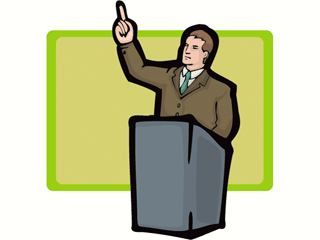
This page has a vocabulary list as the first part. The list has lots of words with definitions so you can read what they all mean. There is also a set of flashcards of the vocabulary that you can download and then a recording of the vocabulary being spoken by a native English speaker so you can hear the correct pronunciation.
Then the second part of the page includes the following three tasks that will test your knowledge of the ESL politics vocabulary:
- Identification of definition that matches a word.
- Identification of word that matches a definition.
- Identification of word that matches a picture.
ESL Politics Vocabulary List with Definitions
This list has ESL politics vocabulary words that you should try to learn so you can use them. Each word has a definition as well as the part of speech it represents. Following the list there is a set of flashcards you can download, and then you can listen to the recordings of the ESL politics vocabulary being spoken by a native English speaker.
Ballot: A piece of paper that lists all the options that can be voted for (same as ballot paper). (noun)
Ballot box: The container that is used to hold all the used ballot papers. (noun)
Ballot paper: A piece of paper that lists all the options that can be voted for (same as ballot). (noun)
Big government: A description of government that is believed to be too much by some. (noun)
Bill: A draft from of a law before it has been approved by a vote. (noun)
Bipartisan: Something that is supported by politicians from two different political parties. (adjective)
By-election: An election that happens in-between regular elections. (noun)
Campaign: The contest between politicians to be elected. (noun)
Candidate: A person who wishes to be elected via a vote. (noun)
Caucus: To meet together to select a candidate to represent a political party. (verb)
Capitalism: A political and economic system where the people rather than the state own items. (noun)
Challenger: A person who hopes to beat someone in an election. (noun)
Checks and balances: The different parts of the American political set up that ensures power is distributed appropriately. (noun)
Coalition: When two or more political parties work together to form a government. (noun)
Communism: A political belief in which the state owns everything, a form of socialism. (noun)
Congress: The elected part of the USA government. (noun)
Conservative: A UK right-wing political party or a member/supporter of that party. (noun) Supporting right-wing political beliefs. (adjective)
Constituency: The area of a country that is represented by a certain elected official. (noun)
Constituent: A person that votes in a specific area for a certain group of candidates. (noun)
Constitution: The document that states the basic laws that govern a country. (noun)
Convention: A gathering of the members of a political party. (noun)
Coup d’ etat: An illegal change of government, often using force and often done by the military. (noun)
Debate: A conversation between people where they try to convince others that they have the correct beliefs. (noun)
Delegate: A person who is chosen or elected to attend an event to represent a larger group of people. (noun)
Democracy: A political system where the population of a country votes for the people that will lead them. (noun)
Democrats: A USA left-wing political party or a member/supporter of that party. (noun)
Dictator: A leader of a country that was not elected and uses force to stay in power. (noun)
Dictatorship: A political system where one person (or group of people) has absolute power and there are no elections. (noun)
Dissolution: To end something so it is separated in to its parts, e.g., the dissolution of parliament. (noun)
Elect: To chose someone using a vote. (verb)
Election: The process of voting to select winners to fill a political position. (noun)
Electoral register: The list of everyone who lives in an area and can vote in an election. (noun)
Electorate: The group of people who are allowed to vote in an election. (noun)
Fascism: A political system that is based on a strict government with set levels. (noun)
Federal: The government at the national level as opposed to local level government, especially in the USA. (adjective)
First past the post: A voting system where the candidate with the most votes is the winner and the losing candidates get nothing. (adjective)
Government: The group or political party that is in charge of a country or area. (noun)
Head of State: The person who leads and represents a country. (noun)
House of Commons: The lower part of the British parliament where the elected politicians debate and vote. (noun)
House of Lords: The upper part of the British parliament where elected and non-elected politicians debate and vote. (noun)
House of Representatives: The lower part of the USA congress where elected politicians debate and vote. (noun)
Houses of Parliament: The building that holds the Houses of Commons and Lords in the United Kingdom. (noun)
Incumbent: The person that currently holds a (political) office. (noun)
Independent: A candidate or elected person who is not a member of a political party. (noun)
King: A male head of state in a monarchy. (noun)
Labour: A UK left-wing political party. (noun)
Landslide: A victory that is very large. (noun)
Law: A one of the rules that people must follow when they are in a country, or the complete set of rules that the people must follow. (noun)
Leaflet: A small piece of paper that has information printed on it. (noun)
Left-wing: To support socialist beliefs or to believe in promoting public welfare. (adjective)
Legislation: The process of forming new laws. (noun)
Liberal: A person who believes in progress and protecting civil liberties. (noun)
Lobby: To try to persuade someone, often a politician, to do as you want. (verb)
Majority: To have more than half of something, such as votes or seats. (noun)
Manifesto: A document that states what a political party or government will do. (noun)
Marxism: To follow the beliefs or Karl Marx that communism is the best political policy. (noun)
Member of Parliament: A person who is elected to a parliament, also MP. (noun)
Minister: A politician that has a specific job in the government. (noun)
Monarchy: A system where the head of state is a king or queen. (noun)
MP: A person who is elected to a parliament, also member of parliament. (noun)
Nominee: A person who has been selected to stand for political office. (noun)
Non-elected: An official who has a permanent job and does not have to stand for election. (adjective)
Opinion poll: A survey in which a random group of people are asked their views. (noun)
Opposition: The political party that is in a minority and does not form the government. (noun)
Parliament: The place in certain countries where the politicians meet to debate and vote. (noun)
Party: A group of people with the same beliefs, e.g., political party. (noun)
Patriot: A person who loves their country. (noun)
PM: The person who leads the government in a country with a parliament, also prime minister. (noun)
Policy: A plan that a government or political party will follow when in government. (noun)
Poling station: The place that people go to vote. (noun)
Political: To be related to politics or politicians. (adjective)
Political party: A group of people with the same political beliefs. (noun)
Politician: A person who has been elected to represent a constituency or someone involved with politics. (noun)
Politics: The process of choosing a leader for a country, and them leading the country. (noun)
Poll: A survey in which random people are asked their views. (noun)
Postal vote: A vote that can be cast using the post rather than visiting a polling station. (noun)
President: The head of state in a republic. (noun)
Primary: A first selection where members of a political party chose the person to stand in an election. (noun)
Prime Minister: The person who leads the government in a country with a parliament, also PM. (noun)
Propaganda: Information that supports or dismisses a topic that maybe at least partially untrue. (noun)
Proportional representation: A voting system in which parties get seats related to their total number of votes. (noun)
Pundit: A person who is an expert and often works for the media. (noun)
Queen: A female head of state in a monarchy. (noun)
Referendum: A vote by the population of a country about a specific topic or piece of legislation. (noun)
Regime: The collective group of people responsible for running a country. (noun)
Republic: A system where the head of state is a president. (noun)
Republican: A USA right-wing political party or a member/supporter of that party. (noun)
Right-wing: To support conservative beliefs or to believe in limited government. (noun)
Run: To contest an election. (verb)
Seat: A position in an elected body that is reserved for the specific winner of each constituency. (noun)
Senate: The upper part of the USA congress where elected politicians debate and vote. (noun)
Socialism: A political belief that the state or country should own everything. (noun)
Socialist: Supporting socialism. (adjective)
Speaker: The person who leads and ensures the functioning of a body of politicians. (noun)
Spin: To show information so that only positive or negative parts can be seen. (verb)
Spin doctor: A person who can spin information to hide the true meaning. (noun)
State: A single independent country. (noun) The organizations and people that run a country. (noun) A subdivision of a larger country. (noun)
Turn-out: The number or proportion of the total that can do something. (noun)
Vice President: The deputy to a president who will become the head of state if the president can no longer do the job. (noun)
Vote: To take part in an election by selecting a candidate. (verb)
Whip: A politician with the job to ensure the other politicians in the party do as they are told to do. (noun)
Vocabulary Flashcards for Politics Words
You can download the following set of ESL politics vocabulary flashcards by clicking on the following picture or link. Once you have downloaded them you can use them when you are offline to keep learning the ESL politics vocabulary items.
Spoken Politics Vocabulary
In this part of the ESL politics vocabulary page you can listen to or watch the following two recordings of the words being spoken by a native English speaker. By doing this you will be able to learn the correct pronunciation. The first recording you can just listen to, while the second one you can watch a video and see the ESL politics vocabulary flashcards being shown at the same time as the words are spoken.
ESL Politics Vocabulary Exercises
Exercise 1 – Correct Definition

For this ESL politics vocabulary exercise you need to decide which of the options (A-D) in each question matches the given word. When you have answered all the questions you can use the get score button to see the correct answers.
ESL Politics Vocabulary Definitions
Choose the correct definition for the politics vocabulary in this quiz.
Exercise 2 – Correct Meaning
In the next ESL politics vocabulary task you need to look at the definition given in each question and decide which option (A-D) matches it. Then you can again use the get score button to check your answers.
ESL Politics Vocabulary Identification of Meaning
Choose the word that matches the definition given in each of the five questions in this quiz.
Exercise 3 – Identify Picture
In the last ESL politics vocabulary activity you need to look at the following pictures and then decide which option (A-D) in each question matches the indicted picture. You can see the correct answers by using the get score button that is at the end of the questions.
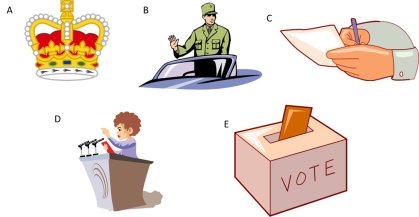
ESL Politics Vocabulary Picture Descriptions
Identify the best description for each of the images (A-E) given above that correspond to the five questions in this quiz.
Other Pages about Politics that You Might Like
ESL Politics Conversations
ESL Politics Listening
ESL Politics Reading
ESL Politics Writing
ESL 4u home › Vocabulary › Politics


|
|
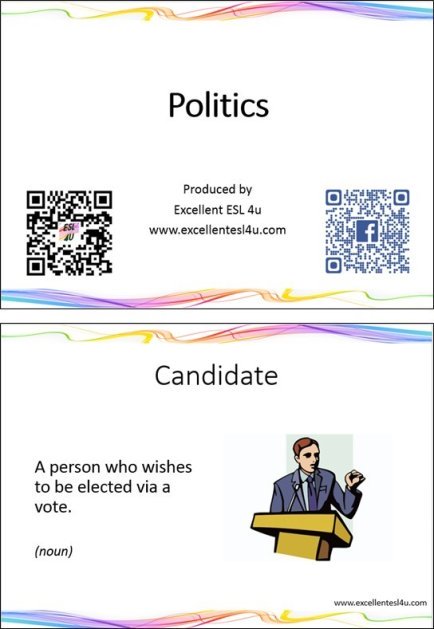

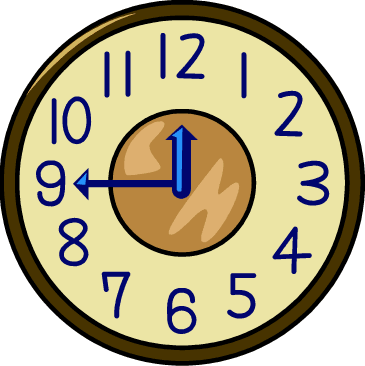
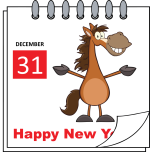
New! Comments
Have your say about what you just read! Leave me a comment in the box below.